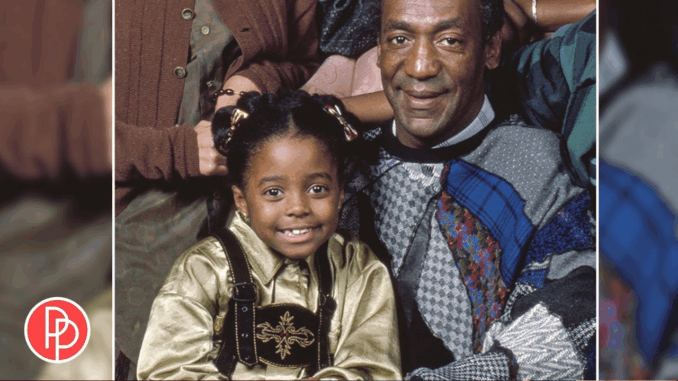
When The Cosby Show premiered in 1984, it redefined what it meant to be a father on television. As one of the first prime-time series to showcase a successful African American family in a positive light, the show also broke ground in its portrayal of family dynamics, particularly the role of the father. Cliff Huxtable, played by Bill Cosby, became an emblem of nurturing fatherhood, challenging stereotypes and offering viewers a fresh perspective on what it meant to be a dad.
In many ways, The Cosby Show was revolutionary. In an era where fathers on television were often depicted as distant, authoritarian, or bumbling figures, Cliff Huxtable was none of these. He was involved, attentive, and emotionally available to his children. Unlike many fathers in the media of the time, Cliff was not merely a figure of authority; he was a partner in his children’s growth and a participant in their lives.
What made Cliff Huxtable’s fatherhood so compelling was his ability to balance being both a figure of discipline and one of love. He was often seen in playful interactions with his children, from dancing around the living room to cracking jokes during family dinners, but he was equally capable of serious moments of guidance. Whether it was talking to his son Theo about the challenges of growing up, helping his daughter Denise navigate the complexities of young adulthood, or sharing wisdom with his younger children, Cliff demonstrated that fatherhood isn’t just about being a provider—it’s about being present, attentive, and engaged.
A standout episode that encapsulates the essence of Cliff’s fatherhood is “Father’s Day” (Season 6, Episode 25). The episode focuses on Cliff’s relationship with each of his children and showcases how he approaches fatherhood with an open heart and a sense of humor. It’s a portrayal of a man who does not rely on rigid authority, but on his deep love for his family. What the episode shows is that fatherhood isn’t a role defined by control or expectation but by support and emotional presence. This is the hallmark of Cliff Huxtable’s approach—fatherhood as an ongoing conversation, rather than a one-sided set of rules.
The relationship between Cliff and his children also helped to address complex issues such as adolescence, academic pressure, and identity in a nuanced way. It was rare at the time to see a father figure engage so deeply in the intellectual and emotional lives of his children. Whether it was encouraging his children to pursue their dreams or helping them navigate their own mistakes, Cliff never made his love conditional. His involvement in their lives was a constant, and his approach to parenting was rooted in respect for their individuality.
Beyond his relationship with his children, Cliff’s dynamic with his wife, Clair, played a significant role in shaping his parenting style. As equal partners, their relationship demonstrated a balanced, supportive partnership. Their mutual respect and communication served as a model for both their children and the viewers. It was clear that Cliff’s fatherhood was not an isolated effort but part of a greater family foundation based on mutual love and understanding.
While the real-life controversies surrounding Bill Cosby have complicated the legacy of The Cosby Show, the portrayal of fatherhood on the series remains an enduring part of its cultural influence. Cliff Huxtable showed that a good father is one who listens, who is present, and who values the importance of emotional connection. His character became an ideal—a father who combines wisdom, humor, and love in a way that resonates across generations.
Today, the legacy of Cliff Huxtable continues to be felt. As modern families evolve and fatherhood continues to be redefined in popular culture, the image of a father who is both loving and active in his children’s lives remains a powerful and essential narrative. While times have changed, the core message of The Cosby Show—that fatherhood is an evolving and deeply emotional role—remains as relevant as ever.
